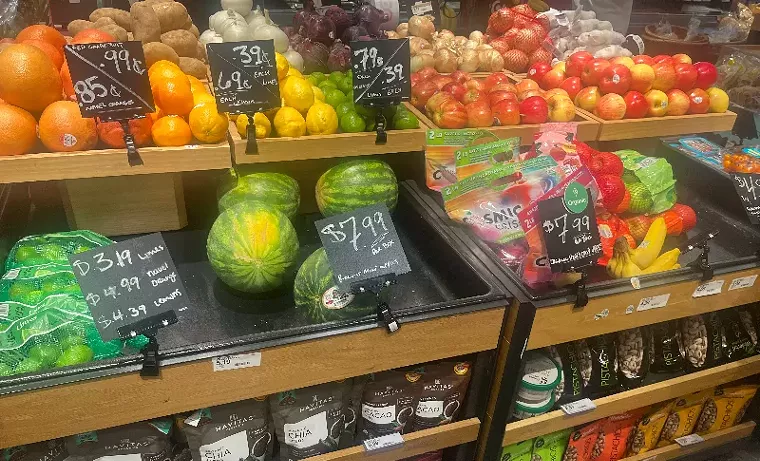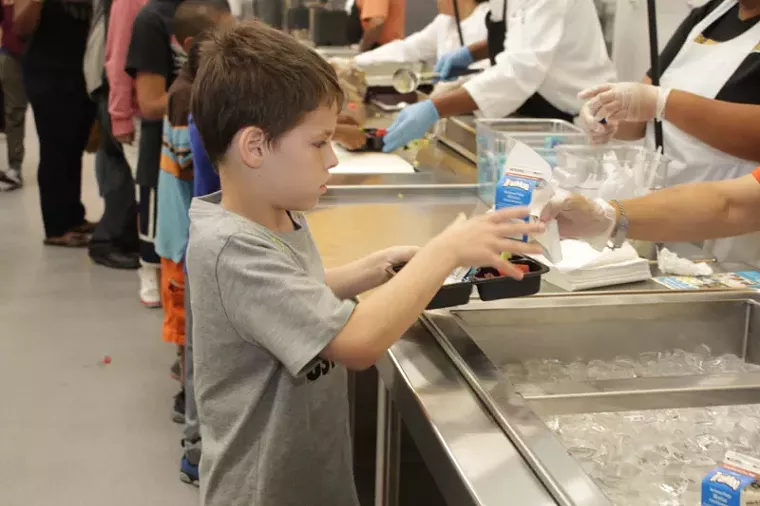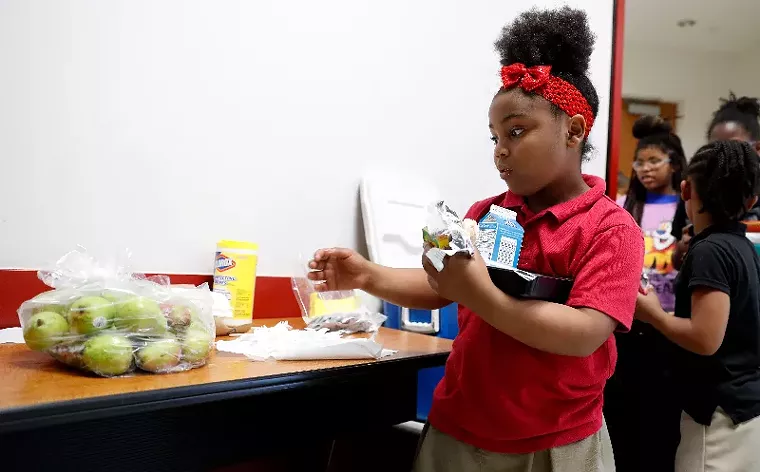As Houstonians enjoy backyard barbecues in the final days of summer, it’s not lost on anti-hunger advocates that recent decisions by the state and federal government have left an estimated 633,000 low-income Harris County families without guaranteed meals until school resumes in mid-August.
Gov. Greg Abbott vetoed a portion of the budget last month that would have allocated $60 million for Texas’ Summer Electronic Benefits Transfer program. The Republican governor cited concerns about federal funding and said the legislature could reconsider the program once it has more clarity about the financial implications.
Following Abbott’s veto, claims that Texan children would starve were quickly refuted. Summer meal programs are available, but the process is cumbersome — in most cases the child has to eat on site — and they’re underutilized. The Summer EBT program is new and while advocates expected it to be funded, it wasn’t something that had been in place for years and was snatched away, explained Celia Cole, CEO of Feeding Texas.
But it would have offered $120 per qualifying child to cover groceries over the summer. Harris County’s “food insecurity rate,” meaning households that have difficulty providing enough food for all members due to a lack of resources, is about 18.2 percent, according to Feeding America.
The Summer EBT program would have offered $120 per child for groceries during the summer.
Photo by April Towery
“We were surprised [by the veto] because we’ve been working to implement it since the program was created,” Cole said. “We worked all session across the aisle in the legislature to build bipartisan support for Texas running the program, which includes them having to put up their share of the administrative costs, and that’s the $60 million that the governor vetoed.”
The investment from Texas could have initiated up to $450 million in federally funded food benefits for kids, Cole added. “It’s definitely a worthwhile return on investment, and because we had bipartisan support for it, we were really encouraged when the budget passed and very discouraged when we learned of the governor’s veto,” she said.
The U.S. Department of Agriculture launched the Summer EBT program in 2024, and Texas was not among the 30 states that implemented it. That means the Lone Star State has to rely on other summer feeding programs offered by Houston ISD and the Houston Food Bank, which aren’t able to feed every hungry child in the region, Cole said.
“There’s been a summer food service program that basically operates out of schools, nonprofits, parks, and rec centers,” she said. “It’s difficult for kids to get out to the sites and historically they’ve always had to eat at the site, which is hard when parents are working.”
More than 10,000 meals are served per day at Houston Food Bank distribution sites.
Photo by Maggi Massad
Jourdan Stansberry, senior manager of education programs for Houston Food Bank, said the Summer Food Service Program serves about 10,000 meals a day at 158 sites, six days a week. The meals are free to children ages 18 and younger and those with disabilities up to age 21.
More people are participating this summer than they have in years past, Stansberry said.
“We’ve seen a grocery [price] hike twice in the last couple of years, so it’s just about affordability,” she said. “It’s about being able to have access to meals that are free, healthy, nutritious, and culturally diverse. We try to have a variety of what we offer instead of a standard cold sandwich with chips and a piece of fruit every day.”
Chicken tikka masala and orange chicken are among the popular dishes at the food bank’s feeding sites. In addition to “congregate feeding sites” at inner city public facilities, two rural locations are operational in Sealy and Brenham. The rural sites offer grab-and-go, five-day bundled meal pick-up and are serving about 250 families this summer, Stansberry said.
The Houston Food Bank’s program runs through August 8. Children in need of nutritious meals over the summer can call 211 for assistance in finding a summer meal program or distribution site.
“In the summer months, we see more families with kids in our lines at the food banks, and we hear from those families that when they lose out on breakfast and lunch for their kids, it really increases the grocery bill,” Cole said. “At the same time, utility bills are going up and they may be paying for camp and things like that. Summer is generally a time that squeezes family budgets, and when that happens, food is usually the first ball to get dropped in the juggling act.”
Stansberry acknowledged the challenges presented by congregate food distribution sites and how hungry families may suffer due to the veto of the Summer EBT program.
“With this program being so heavily regulated, it kind of puts you in a box to where you can meet the need but you’re not exactly able to meet unique needs,” she said. “In light of the recent changes politically and also with inflation, it’s not only affected the day-to-day consumer but also companies. Our food budget has gone up, so we definitely take monetary donations to help enhance the program.”
Houston ISD has been offering free meals at campuses hosting summer school, but the program ends July 18. No registration or ID is required but the breakfast and lunch meals must be consumed on site.
“This program plays a critical role in keeping our students healthy and nourished year-round,” said Betti Wiggins, deputy chief of HISD Nutrition Services. “We’re proud to continue supporting Houston families through our commitment to food security.”
A child selects her meal at a Houston Food Bank distribution site.
Photo by Maggi Massad
Both the HISD and the Houston Food Bank programs are partnerships with the USDA and the Texas Department of Agriculture. Houston ISD’s Sunrise Centers, Second Servings of Houston, and YMCA of Greater Houston also offer food distribution programs.
Stansberry said it’s important for the food-insecure families in Harris County to know that even though the Summer EBT program isn’t happening right away, “children and families have services to fall back on.”
“We’re definitely addressing the food insecurity gap,” she said.
Cole said she appreciates Governor Abbott’s willingness to reconsider funding the Summer EBT program in the future and understands that the veto came within days of the passage of Trump’s “One Big Beautiful Bill” on July 4, which included significant cuts to the Supplemental Nutrition Assistance Program.
“That bill does shift a lot of SNAP costs to states, not Summer EBT costs, but I think [Abbott] was sort of predicting that there would be these additional costs coming to the state,” Cole said. “That said, there’s no talk of changing the way Summer EBT gets funded. We are working to see if we can get him to change his mind.
“We continue to press for it,” she added. “Like I said, it was clear from the governor’s veto that he’s not opposed to the program. It’s just a matter of the uncertainty that the shenanigans in Congress are creating for states.”



